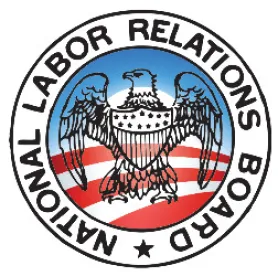The United States Supreme Court finally agreed earlier this year to resolve whether the National Labor Relations Act (NLRA) prohibits class action waivers in employee arbitration agreements. This ruling will have an immediate and far ranging impact on employers. The Trump presidency will likely play a crucial role in the outcome of what will be the first of many challenges to the expansive federal agency policies under the former Obama administration.
Employers have increasingly required employees to sign agreements to have their employment disputes resolved through private arbitration rather than through a lawsuit in state or federal court. The most critical aspect of these agreements has been the provisions by which the employee agrees to resolve his or her dispute on an individual basis rather than by means of a class action. When enforced, class action waivers are a potent weapon to stem the tide of wage and hour and employment discrimination class actions, which otherwise can result in claims involving thousands of workers and multimillion dollar settlements.
During the past five years, the federal appellate courts have disagreed on the validity of class waivers causing confusion for national companies. Under President Obama, the NLRB took the position that workers have a right to engage in “concerted, protected activity” and therefore cannot waive their rights to engage in collective and class action proceedings to enforce these collective rights. In doing so, the NLRB, as it often did under the former administration, reached outside of its traditional role of resolving disputes between management and unionized workforces, to strike down arbitration provisions applicable to non-unionized workers.
In 2013, the Fifth Circuit in D.R. Horton v. National Labor Relations Board rejected the NLRB’s position and upheld the use of class action waivers. Undeterred, the activist NLRB continued to challenge class action waivers without success in the Second and Eighth Circuits in Sutherland v. Ernst & Young and Murphy Oil USA v. NLRB, respectively.
Last year, the NLRB finally received support for its position. The Seventh and Ninth Circuits found that “concerted activities” under the NLRA included participation in class and collective remedies. In other words, these courts struck down class action waivers because they prevented employees from joining together in a class action to assert their common rights. The Seventh and Ninth Circuits bolstered their rulings by declaring that the NLRB was entitled to “judicial deference” in its interpretation of the NLRA. Thus, a split occurred among the circuits that the Supreme Court will resolve. To add further to the confusion, there is another decision pending before the Third Circuit, which may be decided this spring.
Trump recently nominated Judge Neil Gorsuch to the Supreme Court to fill Justice Scalia’s seat. Judge Gorsuch currently sits on the Federal Court of Appeals for the Tenth Circuit. If nominated, many experts believe that Judge Gorsuch will be the deciding vote in what is currently viewed as a four-to-four tie among the justices.
As expected, Trump’s appointment is a conservative jurist whose decisions, on the whole, are pro employer. Not surprisingly then, Judge Gorsuch has a history of reigning in federal agency authority. Of particular note is his opinion in NLRB v. Community Health Services, where he rejected the policy of deference to the NLRB and felt that the NLRB had taken a position beyond its statutory mandate. Gorsuch’s appointment does not bode well for the NLRB’s recent aggressive positions including, its position on class action waivers.
Further tipping the predictive scales in favor of employers, Judge Gorsuch’s past rulings have favored upholding arbitration agreements. In Ragab v. Howard, Judge Gorsuch filed a dissent in a case where the majority refused to enforce an arbitration agreement, because, as he wrote, the “parties clearly intended to arbitrate their claims.” By extrapolation, Judge Gorsuch may be inclined to enforce the parties’ agreement to arbitrate their claims on an individual basis rather than through the means of a class action mechanism. While no one can predict the outcome in this case, the odds are that Judge Gorsuch will vote to uphold the validity of class action waivers.
In terms of timing, the Supreme Court will not likely issue a decision until October or November of this year. In the meantime, employers are left with conflicting precedents. Given the predicted outcome, employers probably should not alter their practices or policies of requiring arbitration agreements with class action waiver provisions. Nor should employers shy away from adopting arbitration policies that include class action waivers. Depending on the jurisdiction where a putative class action is filed, employers should continue to attempt to enforce class action waivers and seek a stay of the litigation, if appropriate, now that the Supreme Court has agreed to hear the case.




 />i
/>i

